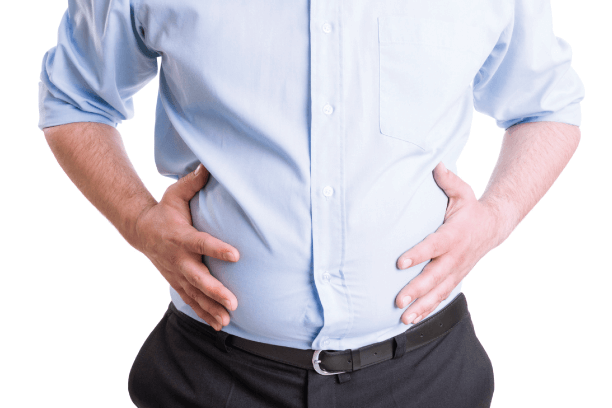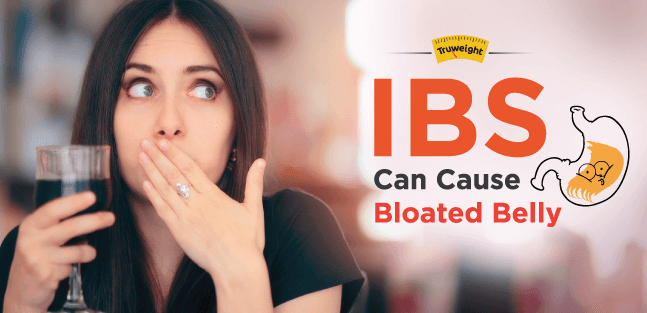Disease, Health, Weight Loss
Irritable Bowel Syndrome: What is it, it’s Symptoms & Diet
Digestive problems could be totally screwing up and aggravating your weight problem and it could very well explain why that number on the scale is rising.
Irritable bowel syndrome is a condition that involves the muscles in the intestines. Normally these muscles tighten and release in a regular pattern to move waste through the intestines.
However, with IBS, it is believed that the contractions may be too fast (causing diarrhea), slow (causing constipation), or go back and forth between both. That’s why it is called irritable bowel syndrome.
Table of Contents
- 7 Major Symptoms of IBS
- 5 Factors Contributing to IBS?
- How Does IBS Impact Your Weight?
- IBS and Diet
- 7 Foods Items That Aggravate IBS
- What Has Been Helpful to Others with IBS?
- 6 Good Sources of Soluble Fiber
Irritable bowel syndrome(IBS) happens when the muscles of your intestines, which normally work to push food through your digestive system, does not contract properly.
They may squeeze too slowly, or they may have abnormally strong contractions. Even though these muscles aren’t working properly, they aren’t diseased and may still look normal under a microscope.
7 Major Symptoms of IBS
- Stomach pain
- Constipation
- Loose stools (diarrhea)
- Both constipation & loose stools
- Change in bowel habits
- Bloating
- Formation of Gas
5 Factors Contributing to IBS?
Though there are no exact causes of IBS. Possible causes are thought to be:
- Abnormal movement/contractions of the colon and intestines.
- Extra sensitive organs in the abdominal cavity.
- Feelings of anxiety (or nervousness), stress, and anger.
- A germ or infection.
- Sensitivity or allergy to certain foods.
How Does IBS Impact Your Weight?
IBS is one of the most common disorders that affect the functioning of the GI system. The exact causes of IBS are unknown. For example, some people with IBS experience increased bouts of diarrhea because their intestines seem to move food through faster than normal.
In others, their IBS symptoms are associated with constipation due to a gut that moves more slowly than normal.
IBS can result in weight loss or gain in certain individuals. Some people may experience significant abdominal cramping and pain that may cause them to eat fewer calories than they normally would. Others may stick to certain foods that contain more calories than needed.
Recent research has indicated that there may also be a connection between being overweight and having IBS. One theory is that there are certain hormones made in the digestive tract that regulate weight.
These five known hormones appear to be at abnormal levels in people with IBS, either higher or lower than expected. These changes in gut hormone levels may affect weight management, but more research is still needed.
You may not always be able to control your symptoms when you have IBS, but there are some ways to help you maintain a healthy weight, including eating a healthful diet that includes fiber.
IBS and Diet
A diet that involves eating several small meals is recommended over eating large meals when you have IBS. In addition to this rule of thumb, a diet low in fat and high in whole grain, carbohydrates can also benefit you when you have IBS.
Many people with IBS are hesitant to eat foods that have fiber for fear they’ll cause gas that worsens symptoms. But you don’t have to avoid fiber completely. You should slowly add fiber to your diet, which helps reduce the likelihood of gas and bloating.
 Aim to add between 2 to 3 grams of fiber per day while drinking plenty of water to minimize symptoms.
Aim to add between 2 to 3 grams of fiber per day while drinking plenty of water to minimize symptoms.
An ideal daily amount of fiber for adults is between 22 and 34 grams. You may want to avoid foods that are known in some people to worsen IBS — these foods also tend to result in weight gain.
7 Foods Items That Aggravate IBS
- Alcoholic beverages
- Caffeinated beverages
- Foods with significant amounts of artificial sweeteners like sorbitol
- Foods are known to cause gas, such as beans and cabbages
- High-fat foods
- Whole milk products
- Fried foods
What Has Been Helpful to Others with IBS?
Try Adding This
Some people have found that increasing their intake of foods or supplements that are high in soluble fiber by 2-3g/day can be helpful with symptoms.
In comparison to insoluble fiber which adds bulk to the stool and speeds up digestion, soluble fiber turns into a gel and slows down digestion.
Soluble fiber supplements include Ispaghula and psyllium. Foods that are good sources of soluble fiber include oats, oat bran, legumes, and barley.
6 Good Sources of Soluble Fiber
- Cereal Grains like barley, oatmeal, and oat bran.
- Seeds like Psyllium seeds, ground.
- Fruits, including bananas, blueberries, grapes, oranges, pineapples, and strawberries.
- Legumes like black beans, kidney beans, lentils (yellow, green, orange), chickpeas.
- Lean proteins, including chicken, eggs, fish, and turkey.
- Vegetables, including carrots, cucumbers, green beans, lettuce, kale, potatoes, squash, and tomatoes.
- Sweeteners, including brown sugar, cane sugar, and maple syrup.
Weight loss or gain can be a side effect of IBS. However, there are diet approaches that can help you reduce your symptoms while maintaining a healthy weight. If a dietary approach doesn’t help your symptoms, talk to your doctor about other potential causes of your weight loss or gain.
Everything said and done, do not let IBS (in case you are suffering from it!) hamper your weight loss goals. Talk to our Possible Nutritionists today and they will help you achieve your goals. The first consultation is on us. Click here to avail.
Next Read:
- What Are IBS And Symptoms To Look Out For
- Five Health Rules To Follow To Avoid Getting IBS
- Symptoms Of IBS In Women, Its Causes And Ways To Control
- Hyper Acidity Vs. IBS | The Difference Between IBS & Acidity
